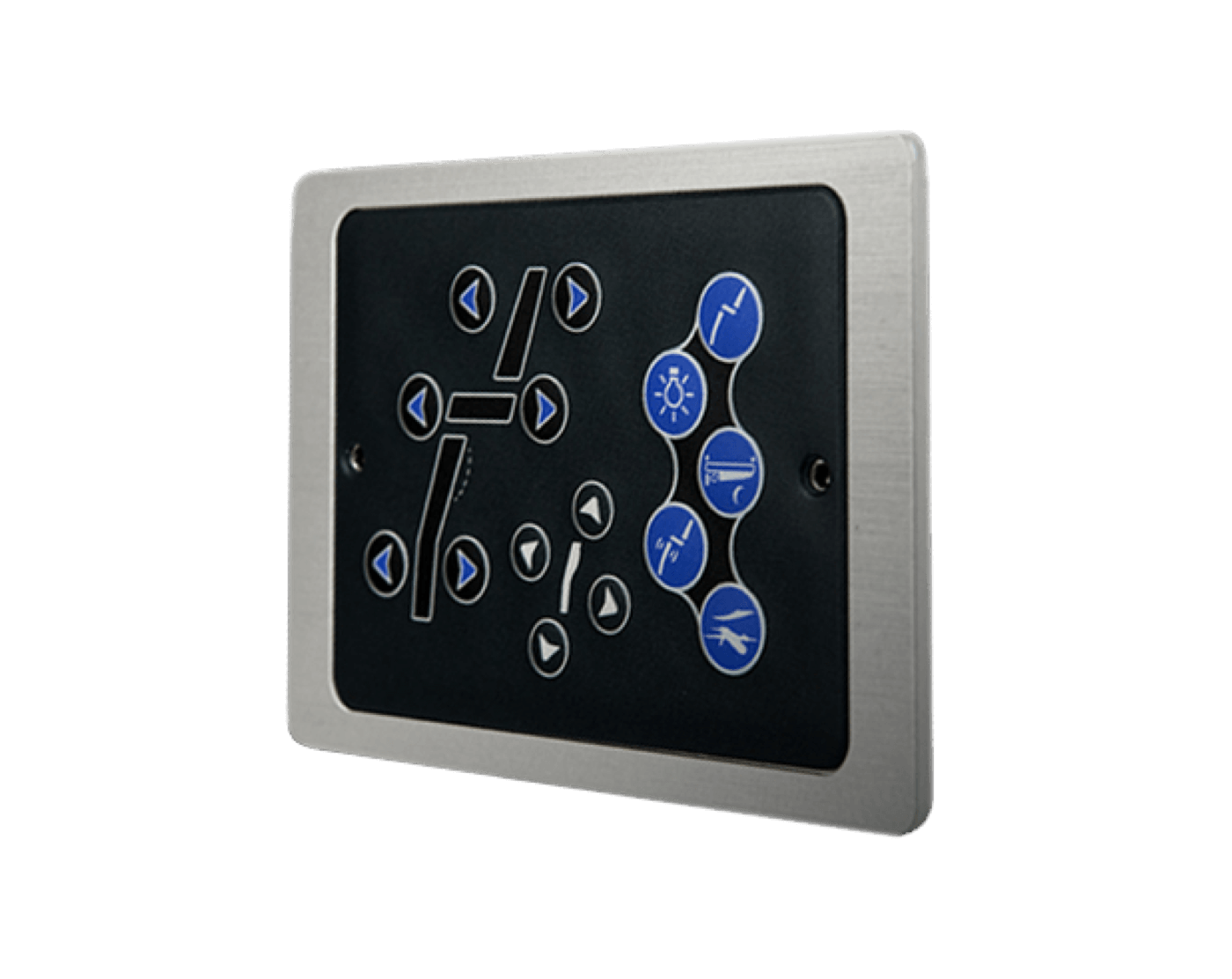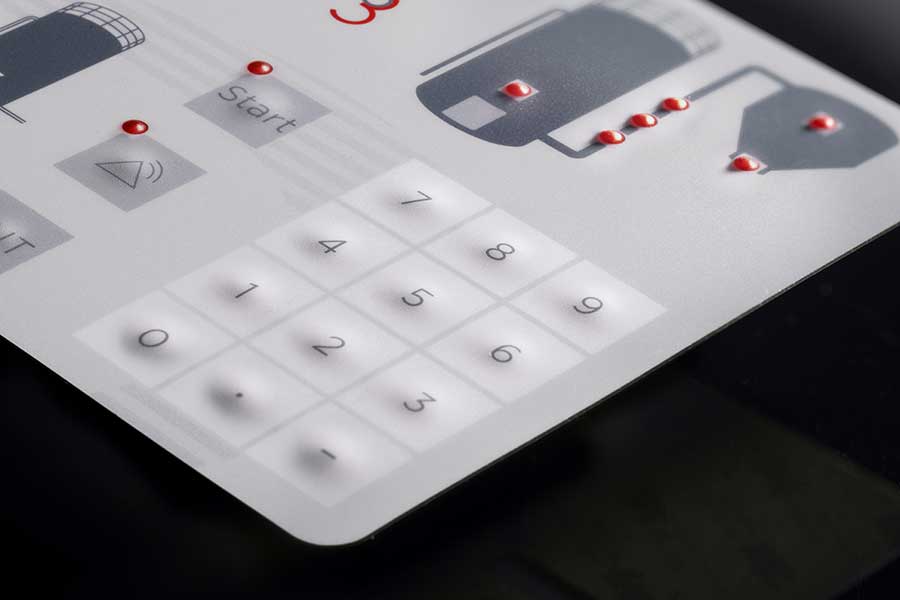Comprehending the Significance of Membrane Switches in Interface
Membrane switches are important parts in the design of effective individual interfaces, assisting in not just functionality but likewise improving visual allure and user interaction. As we explore the future fads and numerous benefits associated with Membrane technology, it becomes clear that these switches are much more than just elements; they represent a merging of advancement and usefulness.
What Are Membrane Buttons?

The spacer layer, which contains adhesive residential or commercial properties, enables the splitting up of the circuit layer from the overlay, making certain that the switch stays in a non-activated state up until pushed. When stress is put on the overlay, it compresses the spacer layer, bridging the void and finishing the circuit in the underlying layer. This layout not just decreases the physical space needed for standard mechanical switches yet additionally improves the resilience of the device, as Membrane buttons are normally resistant to dirt, wetness, and other ecological elements.
Commonly located in applications varying from consumer electronics to clinical devices, Membrane switches are indispensable to contemporary technology, supplying a effective and straightforward interface that straightens with contemporary layout demands.
Benefits of Membrane Buttons
While numerous button technologies exist, Membrane Switches deal distinct benefits that make them specifically desirable in numerous applications. One of the main advantages of Membrane switches is their small layout, which allows for space-saving applications in devices where property is restricted. Their thin profile not just boosts aesthetic charm but additionally facilitates lightweight building and construction.
Another considerable benefit is their resistance to ecological factors. Membrane buttons are generally secured against moisture, dust, and impurities, making them ideal for use sought after settings, such as clinical devices and industrial equipment. This resilience prolongs the life-span of the button, reducing maintenance expenses and improving integrity.
In addition, Membrane buttons can be customized to fulfill details style needs, incorporating unique graphics and colors that enhance user interaction. Their tactile feedback options can also be tailored to offer a rewarding individual experience. Furthermore, Membrane switches are affordable, especially in high-volume applications, as they can be produced efficiently.
Applications in Different Industries

In the customer electronics sector, Membrane switches prevail in gadgets such as microwaves, washing equipments, and push-button controls. Their responsive comments and aesthetic alternatives boost customer experience while offering a streamlined, contemporary appearance. Furthermore, automotive makers utilize see this here Membrane switches in control panel controls and infotainment systems, where room is restricted, and individual engagement is important.
Furthermore, the commercial industry leverages Membrane switches in control panels for machinery and tools, enabling for instinctive operation in commonly rough environments. Their resistance to chemicals and dampness ensures durability and reliability in these applications. In general, the adaptability of Membrane Switches adds substantially to their prevalent usage, making them essential in different technical domains.
Style Factors To Consider for Membrane Switches

When making Membrane switches, several essential considerations should be thought about to make certain optimal functionality and user experience. The choice of products is critical; selecting durable, top quality substrates can enhance the switch's durability and resistance to environmental elements such as moisture and temperature fluctuations.
Second of all, the layout of the visuals overlay her explanation must prioritize clarity and ease of usage. Symbols and message have to be understandable, and the design must help with intuitive interaction (membrane switches). In addition, responsive comments is important; incorporating a responsive dome or various other mechanisms can improve the individual experience by providing physical verification of activation
An additional essential factor is the button's electric performance. Developers should ensure that the conductive traces are properly created to reduce resistance and stay clear of signal disturbance. This includes assessing the required actuation pressure and ensuring compatibility with the electronic parts they will certainly interface with.

Future Trends in Membrane Modern Technology
As technology proceeds to advancement, Membrane buttons are poised to advance considerably, driven by technologies in materials and making techniques. One emerging fad is the incorporation of sophisticated materials, such as adaptable substrates and conductive inks, which enhance longevity and reduce the general weight of Membrane buttons. These materials not only enhance the responsive response however additionally enable for the layout of switches that can endure harsher ecological problems.
Furthermore, the combination of touch-sensitive innovations is changing typical Membrane Switches into more interactive interface. Capacitive touch sensing units installed within Membrane switch panels can supply an extra intuitive and responsive individual experience, lining up with the expanding need for streamlined, modern-day layouts in customer electronic devices.
Additionally, check out this site improvements in printing strategies, such as electronic and 3D printing, make it possible for quick prototyping and customization of Membrane buttons. This adaptability permits suppliers to react more quickly to market needs and customer choices.
Last but not least, sustainability is becoming a significant focus, with manufacturers exploring eco-friendly materials and procedures. As these fads unravel, the future of Membrane technology promises boosted capability, visual charm, and environmental responsibility, solidifying their function in advanced user interfaces throughout various industries.
Verdict
In verdict, Membrane Switches represent a crucial component in the style of user interfaces, integrating capability with aesthetic adaptability. As developments in modern technology continue, the development of Membrane switches is expected to further improve user interfaces, driving advancement and boosting usability in a progressively complex technological landscape.
Membrane buttons are indispensable elements in the style of reliable user interfaces, assisting in not just functionality yet also improving visual allure and user interaction.Membrane Switches serve as an essential component in various individual interfaces, assisting in a smooth communication between users and digital tools.While numerous switch innovations exist, Membrane Switches deal unique benefits that make them specifically preferable in numerous applications.Moreover, Membrane switches can be customized to meet particular layout requirements, incorporating distinct graphics and colors that enhance individual interaction.In final thought, Membrane Switches represent a vital component in the design of user interfaces, combining functionality with aesthetic adaptability.
Comments on “Innovations in Membrane Switches for Touch-Sensitive Devices”